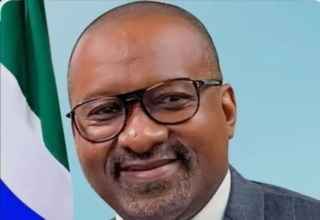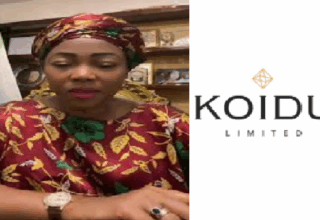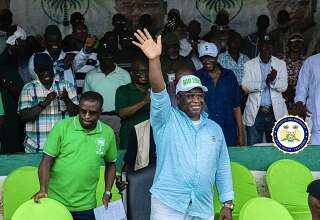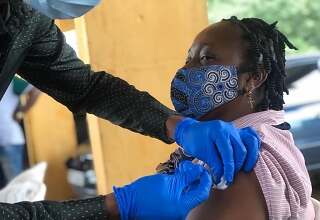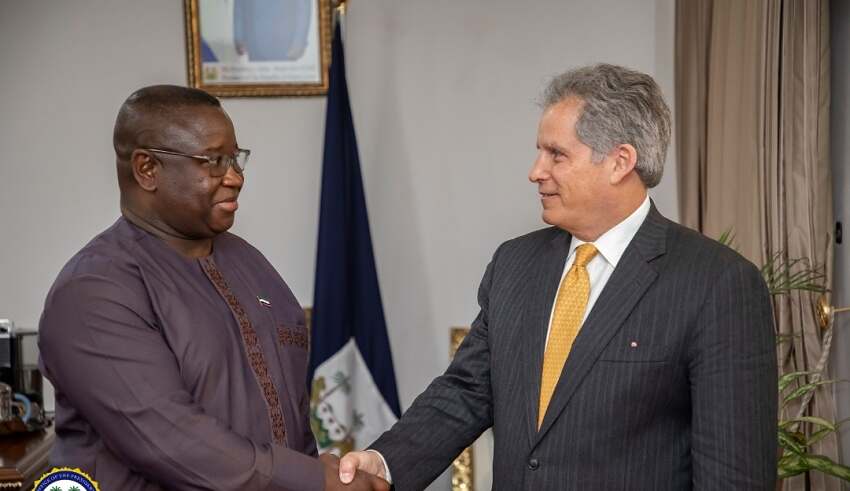
The Executive Board of the International Monetary Fund (IMF) completed the third and fourth reviews of Sierra Leone’s performance under the program supported by an Extended Credit Facility (ECF). Completion of these reviews enables the IMF to disburse SDR31.11 million (about US$ 44.2 million), bringing total disbursements under the arrangement to SDR 77.775 million (about US$ 111 million). The Executive Board approved the authorities’ request for a waiver of non-observance of two performance criteria.
The Executive Board also approved the re-phasing and extension of the ECF arrangement by 12 months. The Board had approved Sierra Leone’s 43-month ECF arrangement for SDR124.44 million (about US$172.1 million) on November 30, 2018 (see Press Release No. 18/446). The Government’s reform agenda, supported by the ECF, continues to aim at creating fiscal space for development by strengthening revenue mobilization, containing current spending and improving the efficiency of public investment.
There are early signs of economic recovery, but Sierra Leone’s fiscal situation remains tight. Economic activity dipped sharply in the second and third quarter of 2020 with inter-district lockdowns and disruptions to international trade and travel. Depressed activity saw inflation trending downwards, though food price inflation remains elevated. Higher frequency indicators suggest a moderate pick-up of activity began in the fourth quarter of the 2020. Mining is expected to drive the recovery in 2021 (growth of 3.2 percent) and 2022 on the back of normalization of production at existing mines and favorable prices. However, fiscal space remains limited, reflecting a still low revenue base, an elevated public debt level, and substantial COVID-19-related and other priority expenditure and development needs.
Growth would recover to pre-COVID-19 levels in the medium term, but there are considerable risks to the outlook. Over the medium term, non-mining growth is projected to average around 4.5 percent. The external position would remain vulnerable as international reserve coverage is expected to decline. Risks to the outlook are significant and include, for instance, unexpected global shifts in the COVID-19 pandemic or an intensification of the third wave, uncertainties in the mining sector, lower-than-expected support from development partners or slower-than-expected reform implementation.
At the conclusion of the Board discussion, Mr. Tao Zhang, Deputy Managing Director and
Acting Chair, made the following statement:
“The COVID-19 pandemic has strained Sierra Leone’s effort to address its large development needs and exacerbated a difficult financing situation. The authorities’ strong economic and health responses helped mitigate the immediate impact of the crisis while exceptional external support, including from the Fund, helped cushion fiscal and external positions. There are early signs of economic recovery, but a third wave of infections and difficulties in vaccine rollout could delay a return to pre-crisis growth.
“The authorities have responded appropriately to the crisis within a tight budget envelope. The 2021 budget continues to prioritize health and other priority spending under the National Development Plan while allowing for a significant improvement in the primary balance. The authorities remain committed to securing fiscal and debt sustainability, through enhanced domestic revenue mobilization, improved expenditure efficiency and controls, and reliance on external grants and concessional financing.
“The Extended Credit Facility arrangement provides a critical policy anchor, including for the post-crisis recovery. The arrangement will help meet external and fiscal financing needs and support the authorities’ reform agenda amidst heightened uncertainty. The authorities continue to strengthen governance, including by making progress with the fraud prevention policy and the internal audit function at the Bank of Sierra Leone, and transparent reporting of COVID-19 related spending.
“Looking ahead, continued strong policy efforts are needed to help the recovery while safeguarding macroeconomic stability. With a high risk of debt distress, this requires enhanced revenue mobilization, prudent expenditure management, and continued external grant support. Mindful of the price stability objective, monetary and exchange rate policy should remain flexible to support the recovery while rebuilding external buffers and monitoring closely financial stability risks.”


